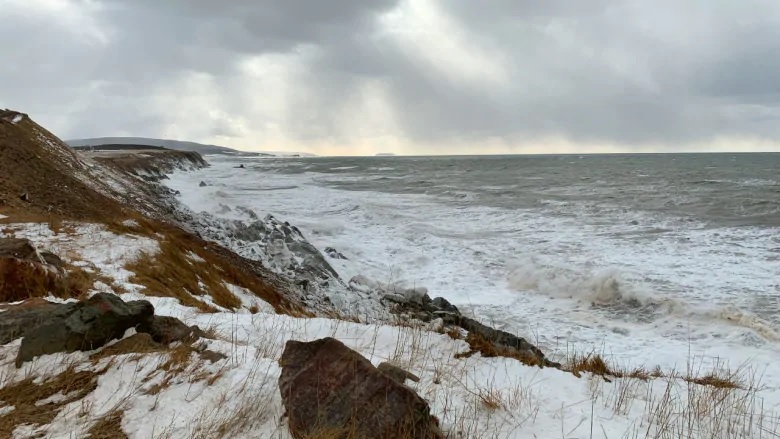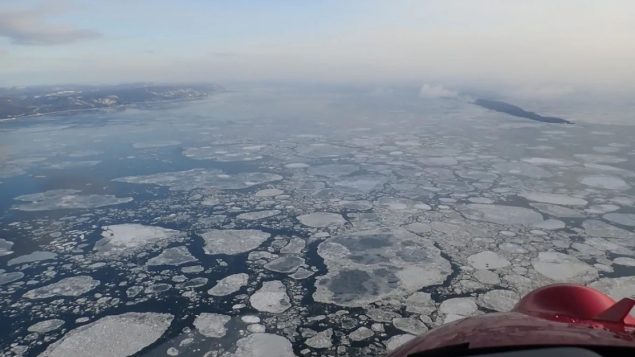People who live nearby and fishers who ply their trade in the region are facing more problems and repercussions as a result of warming waters in the already-troubled Gulf of St. Lawrence.
Last month, a report by Fisheries and Oceans Canada found that water temperatures were at their highest level in over a century, since 1915, when scientists began keeping records in the region.
Now, Environment and Climate Change Canada reports–not surprisingly–that just one per cent of the Gulf is currently covered in ice–at a time of year when it’s normally about a third covered.
WATCH//Drone footage gathered by CBC video producer Shane Hennessey shows sea ice near Mount-Carmel, west of Wellington, Prince Edward Island:
That’s a record low amount of Eastern Canadian sea ice by a wide margin, and it’s almost five per cent less ice than in 2006, the previous record year for the second week of February.
“Despite the recent stretch of cold weather, this winter has been very warm so far and the lack of sea ice in the Gulf of St. Lawrence is concerning,” CBC meteorologist Jay Scotland told the CBC’s Kevin Yarr.
How concerning?
Marr reports that the low ice leaves both Maritime fisheries shorelines along Prince Edward Island, New Brunswick and Quebec’s Magdalen Islands vulnerable to the ill-effects of climate change.

There is very little ice to be found along the western shore of Cape Breton near Grand Étang. Lack of ice has far-ranging percussions for fisherman and residents in the Gulf of St. Lawrence. (Brittany Wentzell)
When ice covers the Northumberland Strait, Marr reports, it cools down the water underneath, allowing scallop beds to thrive.
Warmer waters in ice-free years lead to less growth in scallop beds.
As well, a healthy ice cover serves as a barrier against waves during winter.
Without it, waves crash directly onto fragile dunes and that can lead to shoreline erosion, Garrett Mombourquette, a climate change specialist with Parks Canada, told Yarr.
Mombourquette added that it is still too early to know the full extent of erosion taking place as a result of missing ice.
With files from CBC News (Kevin Yarr),







For reasons beyond our control, and for an undetermined period of time, our comment section is now closed. However, our social networks remain open to your contributions.